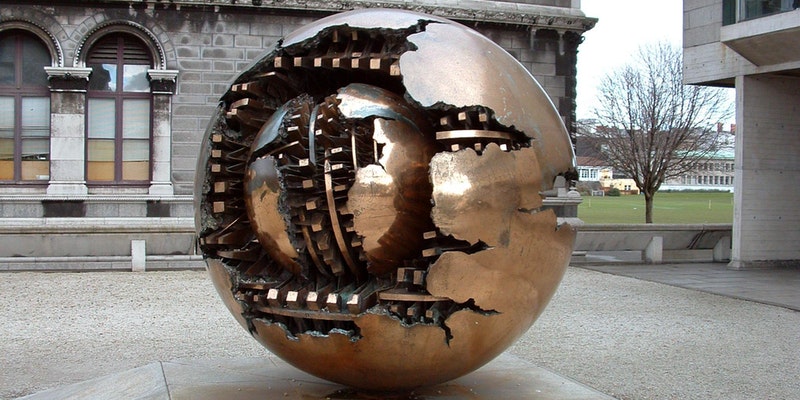Description Freedom of Speech and Higher Education: The case of the academic boycott of Israel. Questions of freedom of speech have been to the forefront in contemporary academic debate. Historically,….

Description
Freedom of Speech and Higher Education: The case of the academic boycott of Israel.
Questions of freedom of speech have been to the forefront in contemporary academic debate. Historically, universities have always provided space for critical thinking and engaged civil society activism. In recent years there has been much discussion about how neoliberalism in higher education has affected academic freedom and the expression of dissenting and controversial views. The conference examines these effects with particular reference to academic boycotts in general, and in particular the controversies surrounding the academic boycott of Israel.
Keynote speakers
Steven Salaita. Author of Uncivil Rites: Palestine and the Limits of Academic Freedom, Steven was denied a Professorship in University of Illinois due to his views on Israel/Palestine and will speak on “Freedom to boycott: BDS and the modern University”
Kathleen Lynch. Chair of Equality Studies, UCD, specialising in neoliberalism and educational policy and theory. Kathleen will speak on “Academic Freedom: New and old challenges”
Programme
The conference will take place from 11-12 September 2017 in the JM Synge and the Robert Emmet Lecture Theatres, Arts Building, Trinity College Dublin.
The conference does not propose to debate the pros and cons of the academic boycott of Israel but rather to make links and draw lessons about the role of the public university in fostering academic freedom, and the freedom to express critical, even if controversial views. It will include sessions on the neoliberal university, lawfare and free speech on campus, with particular reference to the academic boycott
The conference will be interdisciplinary, situated between law, the arts, social sciences and humanities and includes academics from Ireland and abroad with practical experiences of the issues surrounding academic freedom in higher education.
For the full programme and further information please visit our website: www.academicfreedomconference.wordpress.com/
Registration
Registration is €30 for waged and €15 for unwaged. Teas, coffees and sandwiches will be provided for attendees.
Conference Description
There have been claims that austerity and the cuts in public funding for the higher education sector have led to universities responding by:
- Changing university culture to emphasise training for the job market at the possible expense of broader educational goals
- Hiring increasing numbers of temporary, adjunct and precarious academic staff
- Placing greater emphasis on research funding from public, EU and private sources, leading to increasing pressure on academics to seek and compete for scarce financial resources
- A greater reliance on managerialism, cost cutting and bureaucratic measures which put greater administrative pressure on academics
This response may result in stifling critical thinking, dissent and freedom of expression by academics and students and lead to self-censorship and curtailing expression on controversial topics. Today’s public university culture is shifting from one based on ‘the liberal university’ to one focused on a business model, the provision of training and resource management, all of which narrows the space for the exchange of ideas and for freedom of expression.
This has thrown into sharp relief a constant question for academics as to whether their role encompasses or precludes political activism – whether homo academicus should also be homo politicus. With growing global political polarisation, this question has returned to the spotlight with academics under fire for expressing political opinions in Turkey, the US and elsewhere.
Rather than examining these issues on either an abstract or an anecdotal level, the conference focuses on the hotly contested issue of academic boycott, as this offers a paradigmatic example of how controversial topics are dealt with by the contemporary university and of the effects of the neoliberalisation of the public university on academic freedom.
The Palestinian Campaign for the Academic and Cultural Boycott of Israel (PACBI) was initiated in 2004 to contribute to the struggle for Palestinian freedom, justice and equality. It advocates for a boycott of Israeli academic and cultural institutions for their deep and persistent complicity in Israel’s denial of Palestinian rights – including academic freedom – that are stipulated in international law. Across the world, academics and students have responded to the Palestinian call for boycott by refusing to cooperate with Israeli higher education institutions on grounds of conscience. This stance has inevitably caused controversy in universities globally.
Since the academic boycott is a controversial topic, one would expect those who support the boycott to be challenged. However, the challenge rarely comes from within the world of ideas and is usually offered through a mixture of ‘lawfare’, bureaucratic strictures, threat to employment and disciplinary measures. In other words, the academic boycott of Israel is an arena in which disciplinarity – rather than the ideals of the liberal university – is brought to bear. While this is an unsatisfactory way of dealing with controversial topics, the question remains as to how university administrators and academics can best facilitate the free exchange of ideas in this arena. It is these questions which the conference addresses.
Contact
For all queries: email mailto:sept12tcdconference@gmail.com
